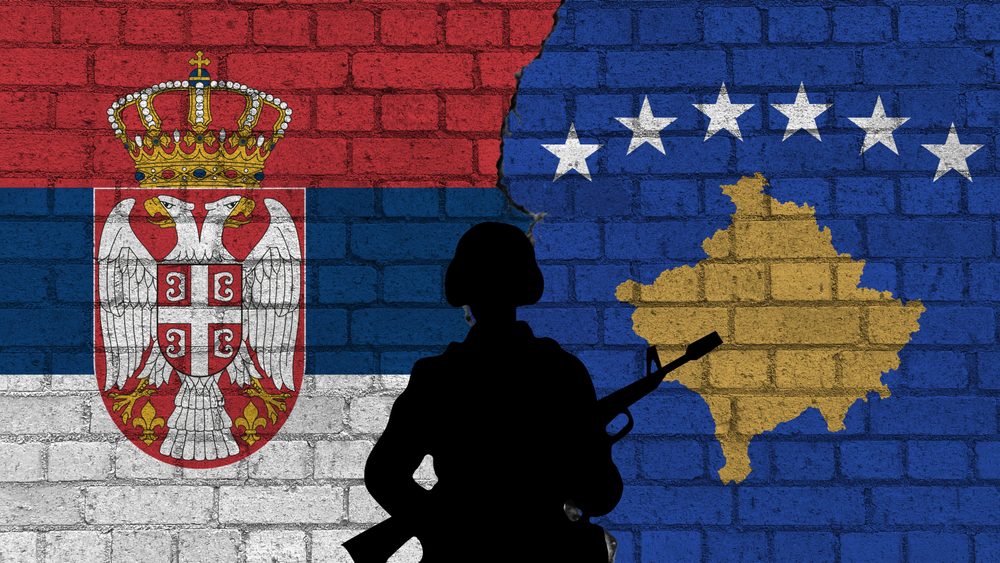
Serbian protesters are no longer blocking the main border crossing in Merdare between Serbia and northern Kosovo. This development has done much to alleviate tensions that some feared might otherwise have progressed toward open military conflict.
After negotiations with Kosovar Serb protesters, Serbian President Aleksandar Vučić announced last night that barricades at the important crossing would be removed within the next 48 hours.
On Wednesday, December 28th, access to the Merdare border crossing was blocked by trucks parked across the road on the Serbian side. In response, authorities in Kosovo closed the border on their side.
Following the dismantling of the barriers, a process that began in earnest on Thursday morning, December 29th, the road is again open for traffic. Kosovo police said they had reopened the crossing, of high importance to road freight, on their end as well.
Vučić however warned that the Serb protesters would
shut off the north of Kosovo-Metohija to Pristina institutions forever in case arrests of Serbs continue, and they want a clear confirmation that there will never be a recognition of Kosovo [which they and Belgrade authorities regard as a breakaway province] in any form.
Around 50,000 ethnic Serbs currently live in northern Kosovo.
As Commander-In-Chief, Vučić also decided that the Serbian army should no longer be on full alert, as they had been these last 3 days.
The EU’s top diplomat, Josep Borrell, welcomed the move towards de-escalation.
“Diplomacy prevailed in de-escalating tensions in north Kosovo. Violence can never be a solution,” Borrell said, as he lauded the “responsible leadership” shown by Serbian President Aleksandar Vučić and Kosovo’s Prime Minister Albin Kurti.
He concluded by thanking the EU, the U.S., and NATO’s peacekeeping force in Kosovo (KFOR) for their teamwork while advocating “urgent progress” in what he termed “the Dialogue”—a likely reference to the important work still needed to mend the strained relations between Belgrade and Pristina.
Diplomacy prevailed in de-escalating tensions in north Kosovo. Violence can never be a solution.
— Josep Borrell Fontelles (@JosepBorrellF) December 29, 2022
Welcome responsible leadership of President Vučić & Prime Minister Kurti.
Great EU, US & @NATO_KFOR teamwork. Thanks to all involved!
We now need urgent progress in the Dialogue.
KFOR was equally appreciative of the goodwill being shown. It however stressed that it expects “all parties to stick to their commitments,” and that it is “closely monitoring & stands ready to intervene if necessary, in line with its UN mandate to maintain freedom of movement.”
#NATO welcomes efforts to de-escalate tensions in northern #Kosovo. We expect all parties to stick to their commitments. @NATO_KFOR is closely monitoring & stands ready to intervene if necessary, in line with its #UN mandate to maintain freedom of movement. pic.twitter.com/ujvhWpXIl8
— Oana Lungescu (@NATOpress) December 29, 2022
For nearly three weeks now, Serbs protesting the arrest of a Serb former policeman have been blocking the roads to the Brnjak and Jarinje border crossings. The situation led to various violent incidents. Protesters agreed to start dismantling their barricades after the policeman was moved from detention to house arrest last Wednesday.
Road blockades had also been set up in other places in the mainly Serb-inhabited north of Kosovo. Out of these, barricades at Rudare and Ibarska Slatina are being, or have already been, removed.
Since most of the West has been backing Kosovo since its self-pronounced independence in 2008, and since Russia for its part has stuck by Serbia, the two entities of Kosovo and Serbia are destined to be players in a greater game for some time still.
